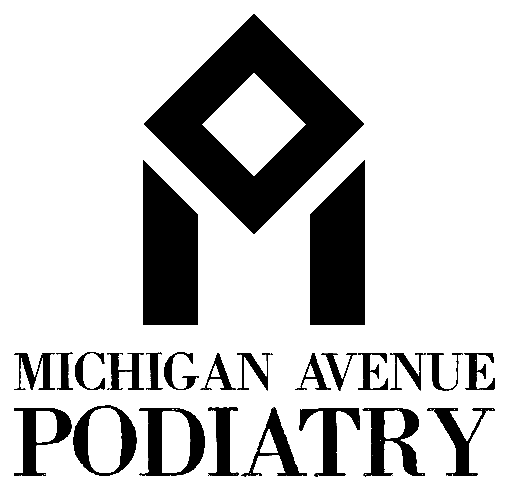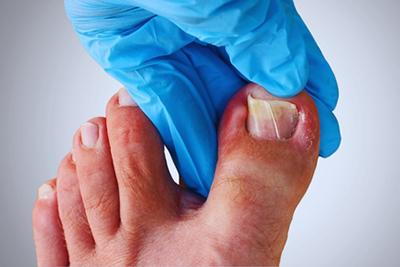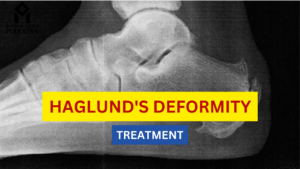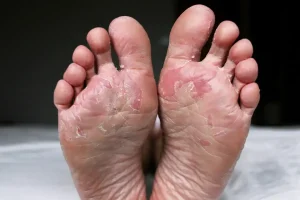Ingrown toenails are a common foot problem that occurs when the edge of a toenail grows into the surrounding skin. This condition can cause pain, redness, swelling, and even infection if left untreated. Understanding the causes, symptoms, and effective care tips can help you manage ingrown toenails and prevent them from recurring. In this post, we’ll share valuable insights from Chicago’s leading podiatrists.
Causes of Ingrown Toenails
Several factors can contribute to the development of ingrown toenails, including:
- Improper Nail Trimming: Cutting nails too short or rounding the edges can lead to the nail growing into the skin.
- Tight Footwear: Shoes that are too tight or narrow can put pressure on the toenails, encouraging them to grow inward.
- Genetics: Some individuals may be more prone to ingrown toenails due to inherited nail growth patterns.
- Foot Injuries: Trauma to the toe, such as stubbing it, can lead to ingrown nails.
- Fungal Infections: Fungal infections can affect nail growth and structure, increasing the likelihood of ingrown toenails.
Symptoms of Ingrown Toenails
Common symptoms of ingrown toenails include:
- Pain: Discomfort at the site of the ingrown nail, especially when wearing shoes.
- Redness and Swelling: Inflammation around the affected toe.
- Pus or Drainage: In cases of infection, there may be fluid or pus coming from the area.
- Nail Changes: The toenail may appear curved or grow in a manner that doesn’t follow the normal shape.
Care Tips for Ingrown Toenails
If you suspect you have an ingrown toenail, here are some care tips recommended by Chicago podiatrists:
1. Soak Your Feet
Soaking your feet in warm, soapy water for 15-20 minutes can help reduce swelling and soften the skin around the nail. This can make it easier to care for the ingrown toenail.
2. Use Antibiotic Ointment
Applying an over-the-counter antibiotic ointment to the affected area can help prevent infection. Be sure to cover the area with a clean bandage after applying the ointment.
3. Wear Comfortable Shoes
Opt for wide, comfortable shoes that do not put pressure on the toes. Avoid tight-fitting footwear that can aggravate the condition.
4. Trim Nails Properly
To prevent ingrown toenails from recurring, trim your toenails straight across and avoid rounding the edges. This helps ensure that the nails grow in a healthy direction.
5. Avoid Self-Removal
If the ingrown toenail is severe or causing significant pain, avoid trying to dig it out yourself. This can lead to further injury and infection. Instead, consult a podiatrist.
When to See a Podiatrist
If home care does not relieve the pain, or if you notice signs of infection such as increased redness, swelling, or drainage, it’s important to see a podiatrist. They can assess the condition and may recommend treatments such as:
- Partial Nail Removal: In some cases, removing a portion of the toenail may be necessary to alleviate pain and prevent recurrence.
- Medication: Prescription medication may be required for infections or inflammation.
- Nail Surgery: In persistent cases, surgical intervention may be necessary to prevent future ingrown toenails.
Expert Podiatrists in Chicago
If you’re dealing with ingrown toenails, the expert team at Michigan Avenue Podiatry is here to help. Our board-certified podiatrists, including Dr. Kelsey Krotiak, Dr. Asim Qureshi, Dr. Zane Qureshi, Dr. Kevin O’Connor, and Dr. Mohammad Usman, provide compassionate and individualized care for all your foot health needs.
Conclusion: Take Charge of Your Foot Health
Ingrown toenails can be painful and frustrating, but understanding how to care for them and when to seek help can make a significant difference. Don’t let ingrown toenails keep you from enjoying your daily activities. If you experience ongoing pain or complications, schedule an appointment with one of our Chicago podiatrists today for expert care and guidance.




